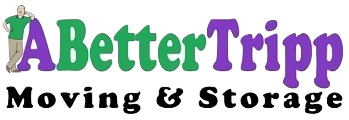
According to the latest statistics put out the US Census Bureau the average American will move about 11 times during their life. That’s about 22 rounds of packing/unpacking, arranging, and storing. But even despite the high amount of times we pick up and move place to place, some things can sometimes fall by the wayside and create a slew of additional work down the road.
In order to properly deal with all of the stress that can spring up during a move it’s usually a good idea to give yourself about eight weeks of time to prepare. At the start of these eight weeks, creating a check list of what needs to be done can lighten the burden of moving even further. Below are some great ways to sidestep mover stress and make your next relocation as smooth as possible.
Anticipate, Donate and Clean
The best way to cut down on the amount of belongings you will be moving is to weed out the ones you won’t need anymore. Set out some time to go through each room and separate out the non-essentials. Old clothing items, books and other items can seem small when you’re putting them into one box at a time, but over the course of a whole move, they can really add up.
Rather than tossing these items out, consider donating them to charity or a local second hand store. If you have a lot of these non-essentials organizing a garage sale might be in your best interest.
As you navigate through your belongings, take the opportunity to clean out some of those hard to reach places. Doing this ahead of time will lessen the amount of cleaning that needs to be done once your belongings have been loaded up and carried away.
Packing Supplies
Don’t leave getting the packing supplies to the last minute. Nothing is worse than heading to the store the day of a move to discover they are out of exactly what you needed. To avoid this, get the things you need ahead of time. Invest in packing tape, packing peanuts and boxes. As a rule of thumb, don’t be afraid to go overboard. It’s better to be safe than sorry. Keep the receipts in the event you need to return some items.
Separate out the Non Essentials
If you want to get a leg up on moving you can start packing up the non-essential items ahead of time. Things like books, pictures and seasonal-specific clothing make great candidates for early packing.
Make Labels
Individually labeling boxes can be a cumbersome some activity at the time, but it completely pays off for itself when it comes time to unload your belongings at your new home. While labeling items as, “kitchen” or , “bathroom” is a great start, going a little more specific is even better. Make a labeled list of what is in each box. This can be very helpful for sorting out the right boxes for kitchen utensils versus the box of pans and pots.
Call Utility Companies
Utility companies can be called way in advance with notice of relocation. Simply take a copy of your latest bill and give the toll free number on it a call. Once you are live with a representative, let them know the date of your move and to where you are going.
Forward Mail Form
Forwarding your mail is a lot less painful of a process than it used to be. Just pop into a nearby post office and ask for a change of address form. Fill out the necessary information on the card such as when you want your mail to be forwarded to your new address and the specific details of your new home. Then, just pop it in the mailbox for your mailman to pick up and you’re set.
Alert Doctors and Vets about Move
Alerting medical professionals of a change of address can often be forgotten about. Letting vets and clinics know of a change of address can be done quickly over the phone. Pets can have a particularly tough time during a move and can often attempt to travel back to their old stomping grounds if left the opportunity. Update all of those records so in the event of an emergency everything is in order to deal with the situation properly.
Arrange Moving and Storage Services
It’s never too early to arrange moving and storage plans. If you plan on utilizing a self-storage unit or a moving service such as U-Haul, making plans way in advance is a great way of deterring any possible overbooked units or vehicles on the day or week you need to use them. Most of the time, these services will require some form of down payment in order to hold the space or truck for you, check around on the internet to see which options you have available to you and consider calling a few of your topic choices to see who has the best deals.
Separate out Important Documents
Plain and simple, things often get lost in a move. To reduce the chances of this happening to your important documents like social security cards, certificates of birth and tax information, put these items in a special box and bring it along with you in the front seat. This way there will never be any confusion as to where these items are located.
Help, Help, Help
Moving is a lot of work and its perfectly okay to ask for help. Get the word out ahead of time. Use your social media programs like Facebook or Twitter to let your friends know you have an impending move on the horizon. Just don’t forget to offer some form of recompense either through beer, pizza or dinner afterwards.
Jenn Young is a freelance writer working with Uncle Bob’s, a storage facility. When not writing about storage, Jenn can be found beautifying her home with organization and design projects.




